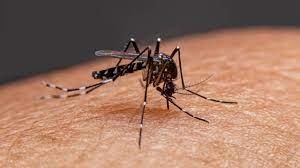What distinguishes dengue from chikungunya if they are both transmitted by mosquito bites?
Mosquito-borne diseases like dengue and chikungunya pose a serious danger to public health, which is why they are a major global issue. Both diseases are spread through mosquito bites, although they differ in a number of ways. The distinctions between dengue and chikungunya, as well as their symptoms, transmission, prevention, and treatment, will be covered in detail in this extensive essay.
Recognizing Dengue
Overview of dengue
The dengue virus is what causes dengue fever, sometimes known as just dengue. The Aedes mosquito is the main vector for its transmission, and the Aedes aegypti mosquito is the most frequent species.
The signs of dengue
extreme fever
terrible headache
Muscle and joint discomfort
Rash
tendency to bleed
varying degrees of nausea
the spread of dengue
When a person is bitten by an infected mosquito, dengue is spread to them. Contrary to several other mosquito-borne illnesses, dengue may potentially pass from mother to child during delivery and via blood transfusions.
Decreased risk of dengue
Reducing mosquito exposure is a key component of dengue prevention. This involves avoiding mosquito breeding grounds like stagnant water and using insect repellent and mosquito netting.
Medications for Dengue
Dengue does not have a particular antiviral remedy. Symptom relief, maintaining hydration, and seeking medical assistance are the usual management strategies.
Investigating Chikungunya
An overview of chikungunya
The chikungunya virus, which likewise largely spreads via the Aedes mosquito, is what causes chikungunya. The crippling joint pain caused by this illness has drawn attention to it.
Acute Chikungunya symptoms
extreme fever
(Frequently severe) Joint ache
muscle ache
Rash
Headache
Nausea
Spread of the Chikungunya virus
Similar to dengue, chikungunya is spread by the bite of an infected Aedes mosquito.
Avoiding the Chikungunya virus
Chikungunya prevention is similar to dengue prevention in that it entails mosquito control techniques.
Chikungunya treatment
There is no particular antiviral therapy for chikungunya, similar to dengue. Rest and symptom reduction are crucial for healing.
Key variations
After examining each illness separately, let’s focus on the main distinctions between dengue and chikungunya.
1. Variations in Symptoms
Bleeding tendencies, which are uncommon in chikungunya, are a feature of dengue. On the other side, dengue is often linked with mild joint pain, but chikungunya is infamous for its severe joint pain.
Joint Pain 2.
Joint pain is a common symptom of both infections, but in chikungunya patients, it is often more severe and persistent, earning it the moniker “chikungunya arthritis.”
Rash Presentation 3.
When it comes to rashes, dengue is often minor and sometimes referred to as a “petechial rash,” but chikungunya rashes are more noticeable and ubiquitous.
4. Complications that are hemorrhagic
Hemorrhagic complications from dengue may occur, although they are uncommon with chikungunya. In conclusion, despite the fact that both dengue and chikungunya are transmitted by mosquitoes, they vary in terms of signs, severity, and aftereffects. For an accurate diagnosis and efficient care, it is essential to comprehend these variances. Taking precautions to minimize mosquito bites is still crucial since preventing these illnesses is the best course of action. With this information in hand, people may now more effectively defend themselves as well as their communities from these mosquito-borne hazards.







